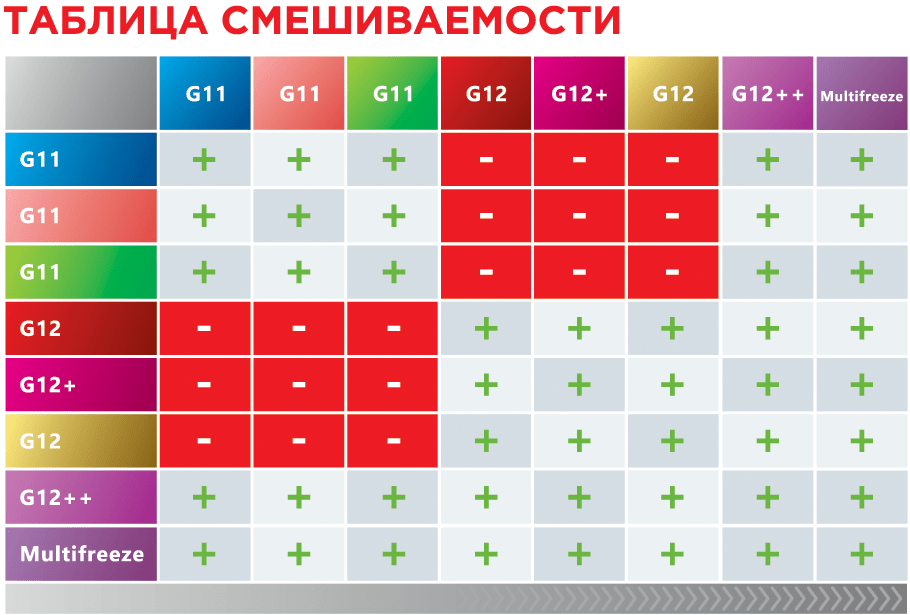
Can I mix G12 and G12 + antifreeze?
Antifreeze with G12+ and G12. What is the difference?
All coolants labeled as G12 (along with modifications G12+ and G12++) consist of ethylene glycol, distilled water and an additive package. Water and the dihydric alcohol ethylene glycol are essential components of almost all antifreezes. Moreover, the proportions of these basic components for antifreezes of different brands, but with the same freezing temperatures, practically do not change.
The main differences between G12 + and G12 antifreezes are precisely in the additives.
G12 antifreeze replaced the G11 product, which was outdated at that time (or Tosol, if we consider domestic coolants). Inorganic additives in antifreezes of outdated coolants, which created a continuous protective film on the inner surface of the cooling system, had one significant drawback: they reduced the intensity of heat transfer. In conditions where the load on the internal combustion engine increased, a new, more efficient solution was required, since standard antifreezes could hardly cope with the cooling of “hot” motors.
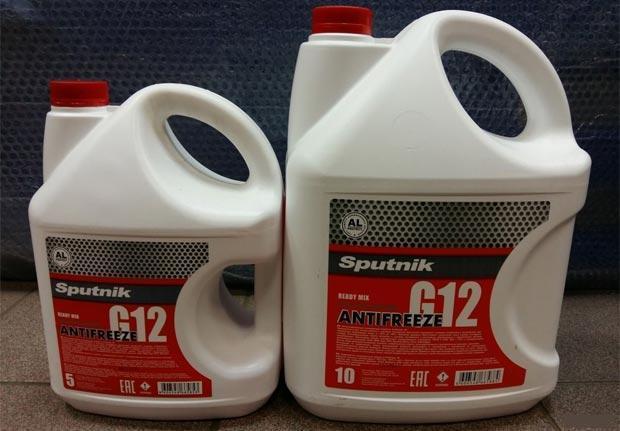

Inorganic additives in G12 antifreeze have been replaced with organic, carboxylate ones. These components did not envelop the pipes, radiator honeycombs and cooling jacket with a heat-insulating layer. Carboxylate additives formed a protective film only in the lesions, preventing their growth. Due to this, the intensity of heat transfer remained high, but in general, the overall protection of the cooling system from chemically aggressive alcohol, ethylene glycol, fell.
This decision did not suit some automakers. Indeed, in the case of G12 antifreeze, it was necessary to give a greater margin of safety to the cooling system or put up with its falling resource.
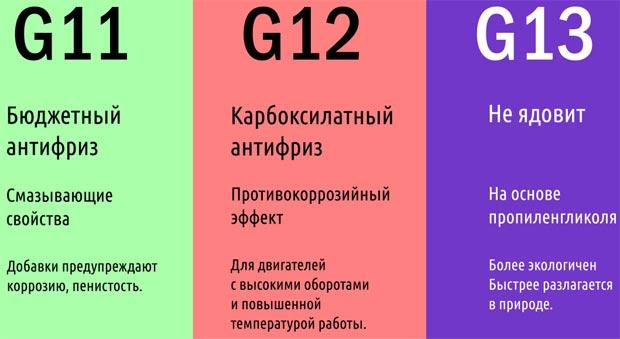

Therefore, shortly after the release of G12 antifreeze, an updated product entered the markets: G12 +. In this coolant, in addition to carboxylate additives, inorganic additives were added in small quantities. They formed a thin protective layer over the entire surface of the cooling system, but practically did not reduce the intensity of heat transfer. And in case of damage to this film, carboxylate compounds came into play and repaired the damaged area.
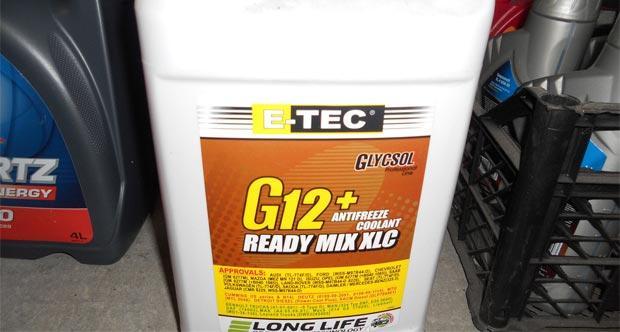

Can G12+ and G12 antifreezes be mixed?
Mixing antifreezes usually involves adding one type of coolant to another. With a complete replacement, usually no one is mixing leftovers from various canisters. Therefore, we consider two cases of mixing.
- The tank initially had G12 antifreeze, and you need to add G12 +. In this case, you can safely mix. Class G12+ coolants are, in principle, universal and can be mixed with any other antifreeze (with rare exceptions). The operating temperature of the engine will not rise, the rate of destruction of the system elements will not increase. Additives will not interact with each other in any way, they will not precipitate. Also, the service life of antifreeze will remain the same, since both of these products, according to the standard, have an interval between replacements of 5 years.
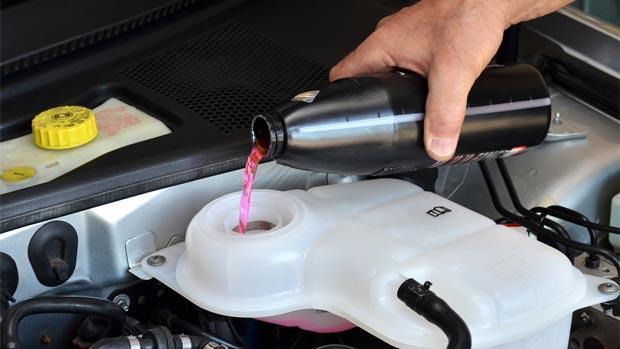

- It was originally in the G12 + system, and you need to fill in G12. This substitution is also allowed. The only side effect that may occur is a slightly reduced protection of the internal surfaces of the system due to the lack of inorganic components in the additive package. These negative changes will be so small that they can generally be neglected.
Automakers sometimes write that it is impossible to add G12 to G12 +. However, this is more of an over-insurance measure than a reasonable requirement. If you need to replenish the system, but there are no other options, feel free to mix any class G12 antifreeze, regardless of manufacturer and subclass. But on occasion, after such mixtures, it is better to completely update the antifreeze in the system and fill in the coolant that is required by the regulations.


Watch this video on YouTube
